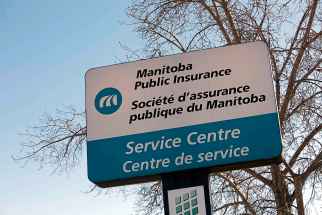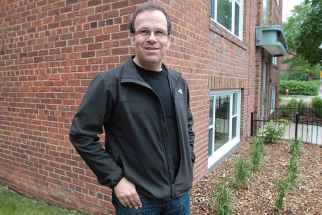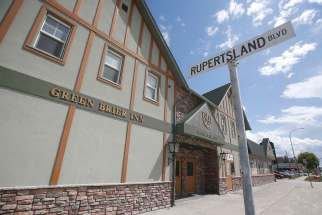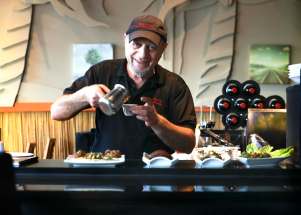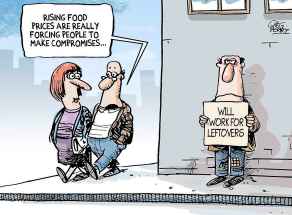No hard feelings on early Manitoba election: poll
Read this article for free:
or
Already have an account? Log in here »
To continue reading, please subscribe:
Monthly Digital Subscription
$0 for the first 4 weeks*
- Enjoy unlimited reading on winnipegfreepress.com
- Read the E-Edition, our digital replica newspaper
- Access News Break, our award-winning app
- Play interactive puzzles
*No charge for 4 weeks then price increases to the regular rate of $19.00 plus GST every four weeks. Offer available to new and qualified returning subscribers only. Cancel any time.
Monthly Digital Subscription
$4.75/week*
- Enjoy unlimited reading on winnipegfreepress.com
- Read the E-Edition, our digital replica newspaper
- Access News Break, our award-winning app
- Play interactive puzzles
*Billed as $19 plus GST every four weeks. Cancel any time.
To continue reading, please subscribe:
Add Free Press access to your Brandon Sun subscription for only an additional
$1 for the first 4 weeks*
*Your next subscription payment will increase by $1.00 and you will be charged $16.99 plus GST for four weeks. After four weeks, your payment will increase to $23.99 plus GST every four weeks.
Read unlimited articles for free today:
or
Already have an account? Log in here »
Hey there, time traveller!
This article was published 25/06/2019 (2364 days ago), so information in it may no longer be current.
Manitobans are annoyed to be headed to the ballot box early, but not enough to break Premier Brian Pallister’s lead in a series of polls.
“Voters are not totally impressed with the early call, but nor are they likely to punish the Progressive Conservatives in any great way,” said Mary Agnes Welch, a principal at Probe Research.
The Free Press commissioned Probe to ask Manitobans how they intend to vote Sept. 10, and if their preferences have changed based Pallister calling the election a year early. (The province’s fixed-date election law had pegged the next vote for October 2020.)
Some 59 per cent of Manitobans feel there shouldn’t be a provincial vote just six weeks before a federal election (Oct. 21).

!function(e,t,s,i){var n=”InfogramEmbeds”,o=e.getElementsByTagName(“script”)[0],d=/^http:/.test(e.location)?”http:”:”https:”;if(/^/{2}/.test(i)&&(i=d+i),window[n]&&window[n].initialized)window[n].process&&window[n].process();else if(!e.getElementById(s)){var r=e.createElement(“script”);r.async=1,r.id=s,r.src=i,o.parentNode.insertBefore(r,o)}}(document,0,”infogram-async”,”https://e.infogram.com/js/dist/embed-loader-min.js”);
However, those who voted Tory three years ago say the early election makes no real difference, with only one-third saying Pallister ought to have stuck with the election-date rules (a trend seen most among older Manitobans and university graduates).
Two-thirds of respondents believe Pallister is calling the vote in order to get another four-year mandate before a series of unpopular cuts — conjecture the premier has avoided talking about.
Still, the Tories hold 42 per cent support across the province, according to the poll.

!function(e,t,s,i){var n=”InfogramEmbeds”,o=e.getElementsByTagName(“script”)[0],d=/^http:/.test(e.location)?”http:”:”https:”;if(/^/{2}/.test(i)&&(i=d+i),window[n]&&window[n].initialized)window[n].process&&window[n].process();else if(!e.getElementById(s)){var r=e.createElement(“script”);r.async=1,r.id=s,r.src=i,o.parentNode.insertBefore(r,o)}}(document,0,”infogram-async”,”https://e.infogram.com/js/dist/embed-loader-min.js”);
Scott MacKay, president of Probe Research, noted the party has held its lead since taking office in 2016.
"Let’s face it, these guys have been doing some very controversial things on the health-care front, particularly, but they’re only down 11 points from what was a massively huge number," MacKay said Tuesday.
The NDP is at 25 per cent support, followed by the Liberals at 16, and the Greens at 14.
The polling shows the PCs and NDP continue to be on equal footing within the boundaries of Winnipeg, with the Tories holding strong support in their rural base.
Early vote, mixed results
There have been more than 15 early elections in Canada since Confederation in 1867. Those called outside of a major policy decision have yielded surprising outcomes.
Manitoba, 1969: Tory premier Walter Weir tried to capitalize on support for his opposition to official bilingualism with an early vote. The NDP selected charismatic leader Edward Schreyer, who led them to a majority.
There have been more than 15 early elections in Canada since Confederation in 1867. Those called outside of a major policy decision have yielded surprising outcomes.
Manitoba, 1969
Tory premier Walter Weir tried to capitalize on support for his opposition to official bilingualism with an early vote. The NDP selected charismatic leader Edward Schreyer, who led them to a majority.
Manitoba, 1990
After the failure of the Meech Lake Accord, Tory premier Gary Filmon called an election, successfully arguing his minority government deserved a majority of seats.
Canada, 1997
Prime minister Jean Chrétien’s Liberals were riding high in the polls, but some of his MPs warned against going to a vote so shortly after Manitoba had grappled with the Red River’s “Flood of the Century.” The Liberals ended up barely scoring enough seats to hold their majority.
Quebec, 2014
Separatist premier Pauline Marois tries to boost her minority, and instead becomes the province’s first single-term government in four decades, with the Liberals earning a majority.
Alberta, 2015
PC premier Jim Prentice called an election a year early, on the premise of needing a mandate to raise taxes and cut spending. The vote is widely seen as Prentice attempting to capitalizing off a weak opposition — and the NDP take surprise majority win, ending the Tories’ 43-year reign.
— Dylan Robertson
Christopher Adams, a University of Manitoba political scientist, said he’ll be watching to see whether Pallister can hold the support of women voters on the Winnipeg battleground.
“The PCs were able to win over Winnipeg women from the (former premier Gary) Doer Democrats before, and I would want to look at how women are going in this election,” Adams said.
However, this month’s polling suggests the NDP is retaining Winnipeg women’s support, with 37 per cent of decided female voters in the city opting for that party, compared with 25 per cent for the Tories.
Pallister recently announced the upcoming election while flanked by mostly female ministers. Meanwhile, his party has tried to keep attention on NDP Leader Wab Kinew’s domestic-assault charges from 2003 (the charges were stayed by the Crown in 2004).

!function(e,t,s,i){var n=”InfogramEmbeds”,o=e.getElementsByTagName(“script”)[0],d=/^http:/.test(e.location)?”http:”:”https:”;if(/^/{2}/.test(i)&&(i=d+i),window[n]&&window[n].initialized)window[n].process&&window[n].process();else if(!e.getElementById(s)){var r=e.createElement(“script”);r.async=1,r.id=s,r.src=i,o.parentNode.insertBefore(r,o)}}(document,0,”infogram-async”,”https://e.infogram.com/js/dist/embed-loader-min.js”);
In any case, Adams noted the election is still almost three months away. “I don’t think voters really understand their local candidates yet, so that still has to pick up some traction.”
Meanwhile, the provincial Greens are on the rise at 14 per cent support, doubling from a year ago. The Liberals appear to be losing voter interest, with 16 per cent marking their lowest number since the 2016 election.
“In the centre and the centre-left, there is some disarray and some musical chairs going on, as people look between the Liberals, the NDP and the Greens,” said MacKay.
He noted the Green party fell just 400 votes short of taking the Winnipeg riding of Wolseley in 2016. “There is a Green presence in Manitoba; they do run strong candidates here,” MacKay said.
The polling also reveals half of respondents agreed they’d rather not have a vote during Manitoba’s 150th anniversary year in 2020.
“Among media circles and political circles, there was a huge eye-roll when the premier suggested that Manitobans were telling him they didn’t want to have an election during the festivities — but I think we actually do feel that way, to some degree,” Welch said.
dylan.robertson@freepress.mb.ca

